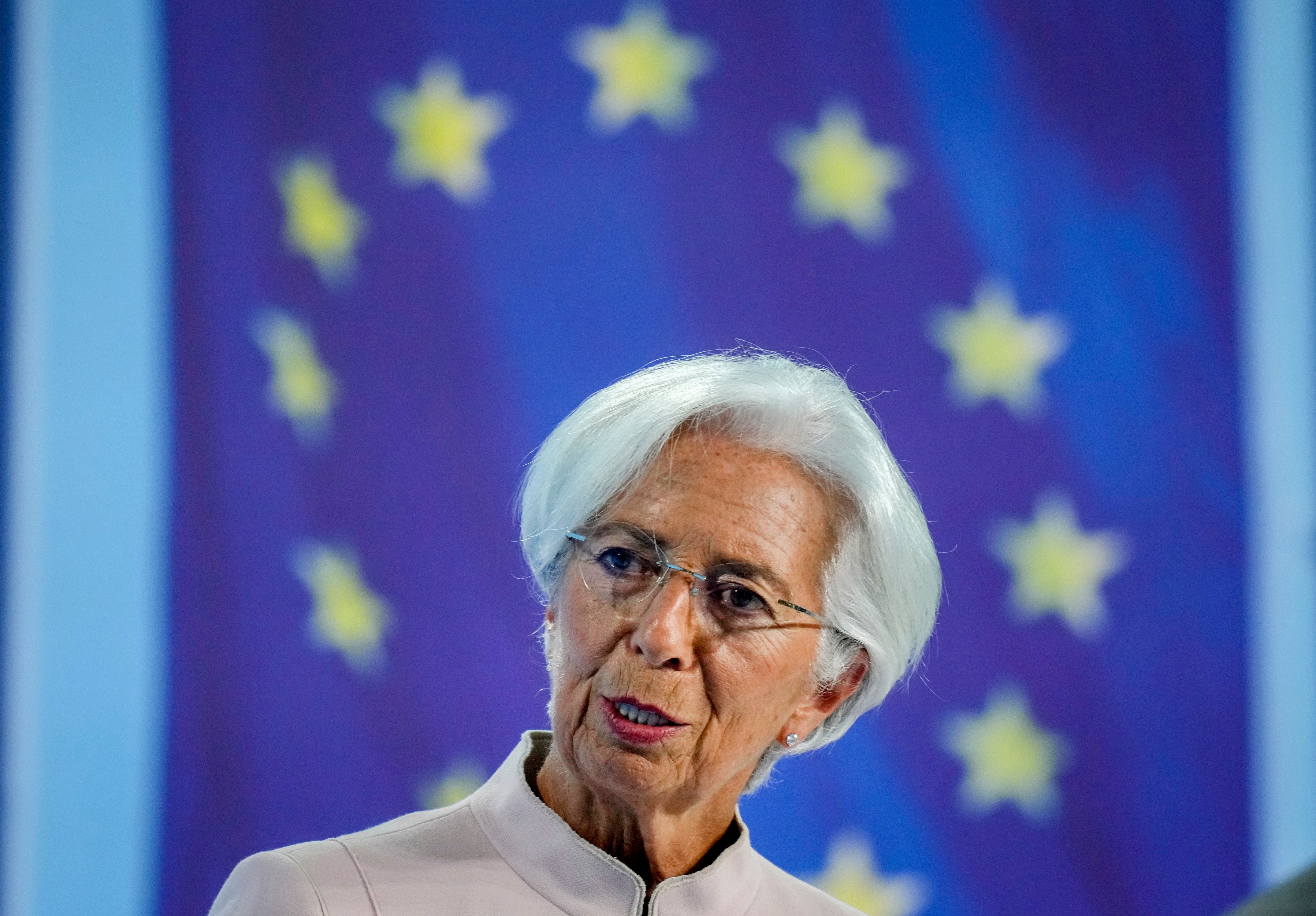Interest rates will stay high 'as long as necessary,' the European Central Bank's leader says
The head of the European Central Bank says interest rates will stay high enough to restrict business activity for “as long as necessary” to beat back inflation because upward pressure on prices “remains strong.”

Your support helps us to tell the story
From reproductive rights to climate change to Big Tech, The Independent is on the ground when the story is developing. Whether it's investigating the financials of Elon Musk's pro-Trump PAC or producing our latest documentary, 'The A Word', which shines a light on the American women fighting for reproductive rights, we know how important it is to parse out the facts from the messaging.
At such a critical moment in US history, we need reporters on the ground. Your donation allows us to keep sending journalists to speak to both sides of the story.
The Independent is trusted by Americans across the entire political spectrum. And unlike many other quality news outlets, we choose not to lock Americans out of our reporting and analysis with paywalls. We believe quality journalism should be available to everyone, paid for by those who can afford it.
Your support makes all the difference.The head of the European Central Bank said Monday that interest rates will stay high enough to restrict business activity for “as long as necessary” to beat back inflation because upward pressure on prices “remains strong” in the 20 countries that use the euro currency.
Christine Lagarde said “strong spending on holidays and travel” and increasing wages were slowing the decline in price levels even as the economy stays sluggish. Annual inflation in the eurozone eased only slightly from 5.2% in July to 5.3% in August.
“We remain determined to ensure that inflation returns to our 2% medium-term target in a timely manner,” Lagarde told the European Parliament’s committee on economic and monetary affairs. “Inflation continues to decline but is still expected to remain too high for too long.”
The ECB last week raised its benchmark deposit rate to an all-time high of 4% after a record pace of increases from minus 0.5% in July 2022.
Analysts think the ECB may be done raising rates given signs of increasing weakness in the European economy. Other central banks, including the Bank of England and the U.S. Federal Reserve, held off on rate increases last week as they draw closer to the end of their rapid hiking campaigns.
Inflation broke out as the global economy rebounded from the COVID-19 pandemic, leading to supply chain backups, and then Russia invaded Ukraine, sending energy and food prices soaring.
Lagarde has said interest rates are now high enough to make a “substantial contribution” to reducing inflation if “maintained for a sufficiently long duration.” The bank sees inflation declining to an average of 2.1% in 2025 after hitting a record-high 10.6% in October.
Higher rates are central banks' chief weapon against excessive inflation. They influence the cost of credit throughout the economy, making it more expensive to borrow for things like home purchases or building new business facilities. That reduces demand for goods and, in turn, inflation but also risks restraining economic growth.
The ECB’s higher rates have triggered a sharp slowdown in real estate deals and construction — which are highly sensitive to credit costs — and ended a yearslong rally in eurozone home prices.
Lagarde said the economy “broadly stagnated” in the first six months of this year and incoming data points to “further weakness” in the July-to-September quarter. She cited ECB forecasts that expect the economy to pick up as inflation declines, giving people more spending power.